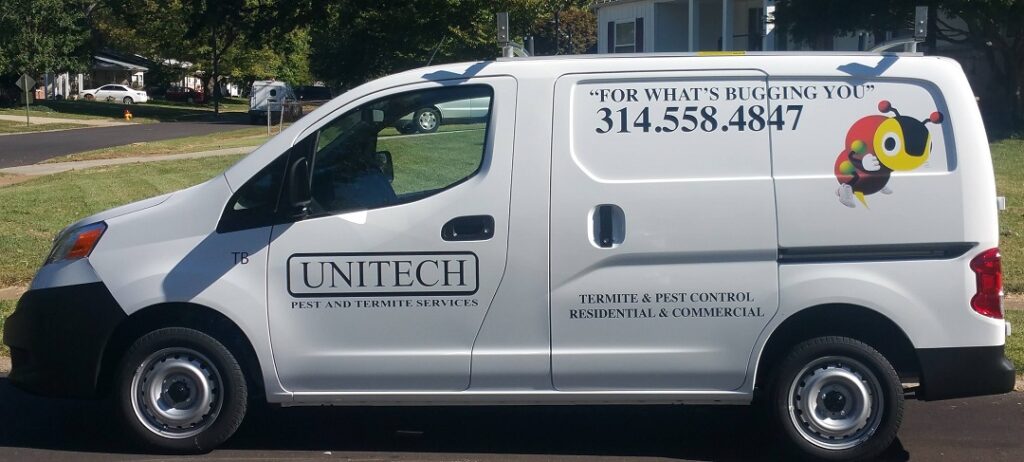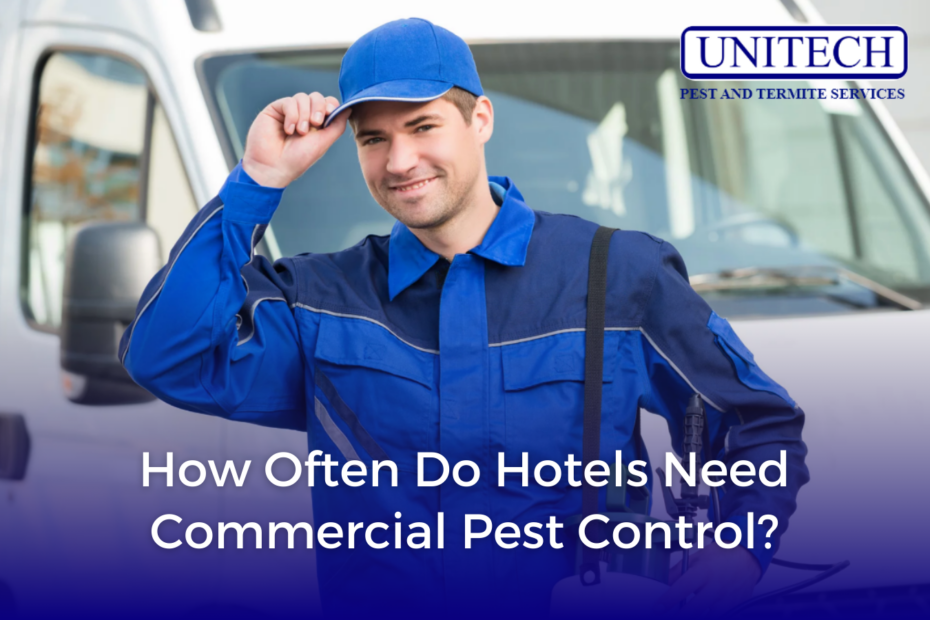Hotels face unique challenges when it comes to pest control. With high guest turnover, food services, and numerous entry points, the risk of pests is always present. It’s crucial for hotel managers to stay on top of pest control to ensure a pleasant experience for their guests and maintain the hotel’s reputation. Regular commercial pest control is essential to keep infestations at bay and protect the hotel’s infrastructure and health standards.

The Importance of Regular Commercial Pest Control
Health and Safety Concerns
Pests can carry diseases and parasites that pose serious health risks to both guests and staff. For instance, rodents can spread bacteria through their droppings, while insects like bed bugs can cause itchy bites and allergic reactions. Regular hotel pest control can help prevent these health hazards, ensuring a safe and hygienic environment.
Protecting the Hotel’s Reputation
Guests expect cleanliness and comfort when staying at a hotel. A single sighting of a pest can lead to negative reviews and damage the hotel’s reputation. In the age of online reviews and social media, word about a pest problem can spread quickly. Routine commercial pest control helps maintain a positive image and keeps guests coming back.
Preventing Structural Damage
Many pests, such as termites and rodents, can cause significant damage to the hotel’s structure. Termites can weaken wooden elements, while rodents may chew through electrical wiring, leading to costly repairs and potential safety hazards. Regular inspections and treatments by commercial pest control professionals can identify and mitigate these risks early on.
How Often Should Hotels Schedule Pest Control?
General Guidelines
The frequency of hotel pest control depends on several factors, including the hotel’s location, size, and type of services offered. However, a general rule of thumb is to schedule pest control services at least once every quarter. This ensures regular monitoring and prompt action if any issues arise.
High-Risk Areas
Certain areas of the hotel may require more frequent attention. Kitchens and dining areas, for example, are hotspots for pests due to the presence of food and waste. These areas should be inspected and treated monthly to prevent infestations. Additionally, storage rooms, laundry facilities, and basements should be checked regularly as they can provide ideal conditions for pests like rodents and insects.
Seasonal Considerations
Pest activity can vary with the seasons. For instance, ants and flies are more prevalent in the warmer months, while rodents may seek shelter indoors during colder periods. Adjusting the frequency of hotel pest control based on seasonal trends can help address specific pest problems more effectively.
Ensuring Hotel Success: The Vital Role of Pest Control
Maintaining a pest-free environment is essential for the success of any hotel. Regular commercial pest control helps protect the health and safety of guests and staff, preserves the hotel’s reputation, and prevents costly structural damage. By scheduling routine inspections and treatments, particularly in high-risk areas and during peak seasons, hotel managers can stay ahead of potential pest problems.
To secure the health and safety of your guests and staff while preserving your hotel’s esteemed reputation, partner with Unitech Pest. Our experienced team is dedicated to ensuring your establishment remains a pristine, pest-free environment with our eco-friendly pest control solutions for hotels. Don’t wait for a pest problem to arise; take proactive steps today. Make the smart, sustainable choice for your hotel—choose Unitech Pest.


